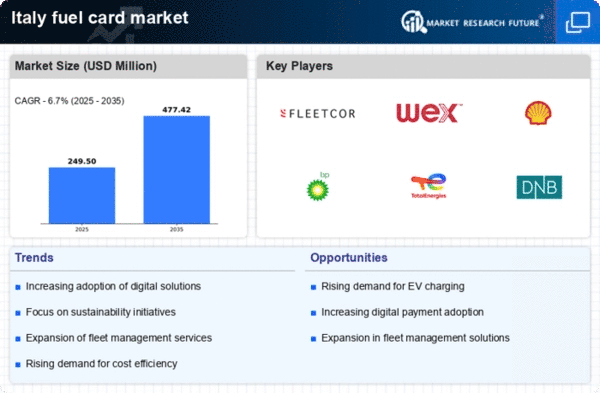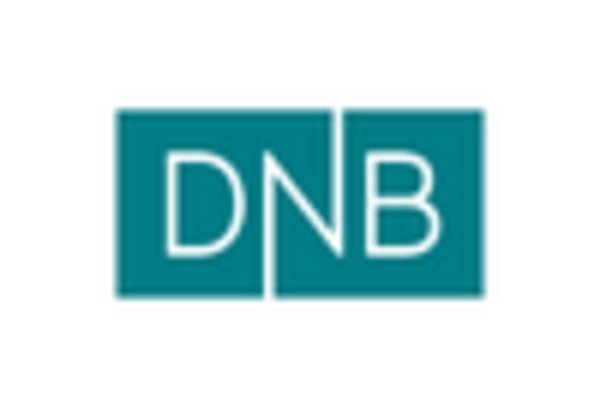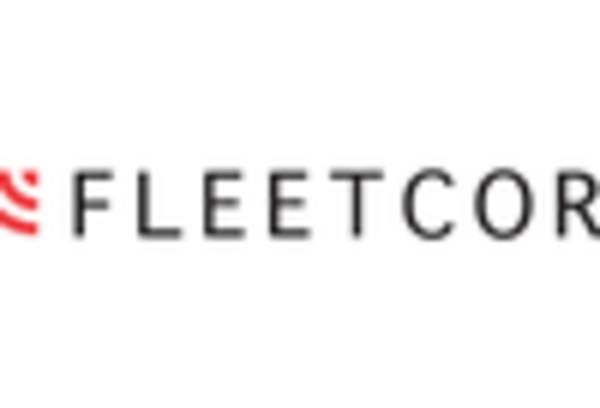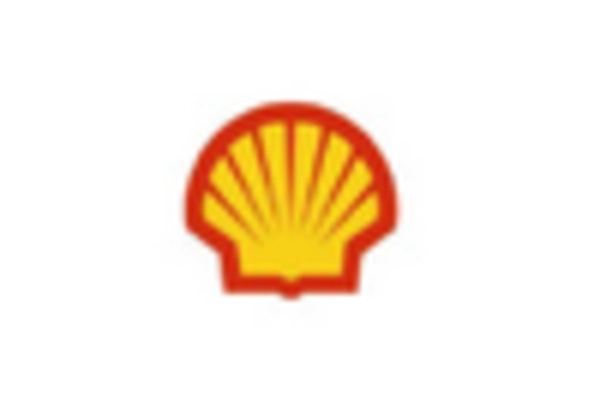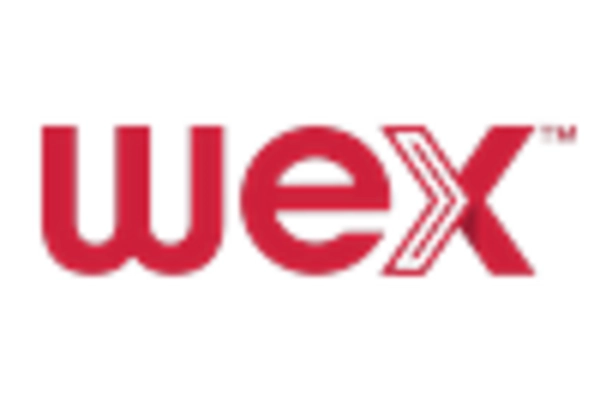Rising Fuel Prices
the fuel card market in Italy is significantly impacted by rising fuel prices.. As fuel costs continue to escalate, businesses are increasingly seeking ways to manage their fuel expenditures effectively. Fuel cards provide a mechanism for companies to monitor fuel consumption and control costs, which is particularly crucial in an environment where fuel prices can fluctuate significantly. In 2025, the average price of diesel in Italy is projected to be around €1.70 per liter, prompting companies to adopt fuel cards to gain insights into their fuel usage patterns. This trend indicates a growing reliance on fuel cards as a strategic tool for cost management in the fuel card market.
Increased Fleet Management Needs
the fuel card market in Italy is driven by the growing complexity of fleet management.. As businesses expand their operations, the need for efficient fleet management solutions becomes paramount. Fuel cards offer a streamlined approach to tracking fuel expenses, vehicle maintenance, and driver behavior. In 2025, it is estimated that the number of registered commercial vehicles in Italy will exceed 3 million, highlighting the demand for effective fleet management tools. Companies are likely to leverage fuel cards to enhance operational efficiency, reduce administrative burdens, and improve overall fleet performance, thereby propelling growth in the fuel card market.
Regulatory Compliance Requirements
the fuel card market in Italy is shaped by strict regulatory compliance requirements.. Businesses are increasingly required to adhere to various regulations concerning fuel usage, emissions, and reporting. Fuel cards facilitate compliance by providing detailed transaction records and reports that can be used for audits and regulatory submissions. In 2025, it is anticipated that new regulations will be introduced to further tighten emissions standards, compelling companies to adopt fuel cards as a means of ensuring compliance. This trend suggests that the fuel card market will continue to grow as businesses seek to navigate the complexities of regulatory frameworks.
Focus on Environmental Sustainability
the fuel card market in Italy is increasingly shaped by a focus on environmental sustainability.. As businesses strive to reduce their carbon footprints, fuel cards are being utilized to promote eco-friendly practices. Companies are leveraging fuel cards to monitor fuel consumption and identify opportunities for reducing emissions. In 2025, it is projected that 30% of businesses in Italy will implement sustainability initiatives, which may include the adoption of fuel cards as part of their environmental strategies. This trend indicates a growing recognition of the role that fuel cards can play in supporting sustainable business practices within the fuel card market.
Technological Advancements in Payment Systems
the fuel card market in Italy benefits from advancements in payment systems.. Innovations such as contactless payments and mobile applications are enhancing the user experience for fuel cardholders. In 2025, it is expected that the adoption of digital payment solutions will increase, with a projected growth rate of 15% in mobile payment transactions. This shift towards digitalization is likely to attract more businesses to the fuel card market, as companies seek to leverage these technologies for improved transaction efficiency and security. The integration of advanced payment systems is poised to reshape the landscape of the fuel card market.

